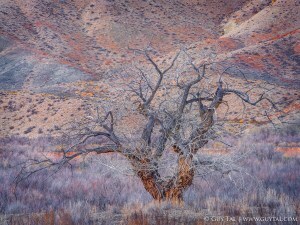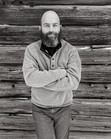Saying Yes — A Personal Note
Say yes to everything, shirk nothing, don’t try to lie to yourself. You are not a solid citizen, you are not a Greek, you are not harmonious, or the master of yourself, you are a bird in the storm. Let it storm!
—Hermann Hesse
The day’s light is fading. The silence is palpable. So are the doubts and the anxiety. But not the questions. They buzz loudly, incessantly, urgently. The mind craves answers, assurances, plausible expectations, comforting hopes. Hell, even some remotely tenable conjectures will do. But none are to be had.
Live long enough and at some point, likely more than once, you will find yourself facing some version of this situation: your day starts like any other, then something unexpected happens that changes everything. By the day’s end, one thought looms more vividly in your mind than any other: your life as you knew it is no longer and will never be again. Tomorrow will be very different from today, and you have no idea how.
The questions come unbidden, indignant, demanding, as if a part of your brain is angry with another part for owing it answers it has but refuses stubbornly to give. After a while, you surrender, fatigued and cognitively drained, and all questions finally blur and merge into one: now what?
Despite its pithiness, “now what?” is neither a simple nor a trivial question. It is in fact where one of the greatest questions of philosophy—how best to live—meets practical reality, one decision at a time. As any good existentialist will tell you, there are two ways to answer it: authentically or inauthentically.
To answer authentically is to consider the implications of every possible choice available to you—including those that are difficult, impractical, risky, or that may be offensive to others—and to choose the one that most closely aligns with your own values and sense of self: who you are, what you believe, how you wish to live, what is important to you, the things that make (or could make) your life more meaningful and interesting.
~~~
So, now what? No lesser a thinker than the forebear of existentialism, Friedrich Nietzsche, has offered a pithy answer to this pithy question: say yes to everything. Approach whatever life throws at you with the attitude of finding your way to loving it—even if it involves or may result in suffering, danger, uncertainty, effort, breaking with history or tradition, scrapping former plans, abandoning naive hopes, defying other people’s expectations, reshaping or even ending some relationships.
The only way to love your life no matter the circumstances is to live to the best of your abilities on your own terms: to remain true to yourself and to your freely-chosen values. As Ralph Waldo Emerson put it, “when you have chosen your part, abide by it, and do not weakly try to reconcile yourself with the world.” If your choices lead to pain, then you suffer; if they lead to conflict, then you fight; if they lead to failure, then you ask yourself again, “now what?”. Your reward for such an attitude is, in the words of Nietzsche, “the only thing that can prove today whether one is worth anything or not—that one endures.”
But of course, there is more to life than enduring suffering. To an existentialist, life is a project of becoming: of shaping yourself—consciously and deliberately, one choice at a time, from the materials and possibilities available to you, according to your own values and understanding of yourself, and in recognition that your time is limited. You may be bound in some ways by your circumstances, and you may be in some ways a product of your past, but you are also free to transcend them: to choose at any time to change course, values, beliefs, profession, place, attitude, relationships. You are free, in short, to shape your future: what you become. Sacrificing your freedom, values, and sense of meaning in life for the sake of things like ease, safety, luxury, conformity, may come at a great cost: a life of benign experiences, boredom, guilt, and meaninglessness—a mode of living described by Jean-Paul Sartre as “bad faith.”
Among Nietzsche’s great revelations was that most philosophers before him preached clinging to idealistic, virtuous values according to clear and universal definitions of “good” and “evil” in denial of the fact that life is by nature imperfect, unpredictable, finite, sometimes difficult, sometimes unfair, sometimes utterly miserable. To deny life’s negative aspects is to delude yourself, to cling to false hope, to chase after an ideal of blissful living you can never attain. To live properly, Nietzsche claimed, is to embrace life fully in all its aspects—the beautiful and the ugly, the joyous and the miserable, the virtuous and the unjust, the pleasurable and the painful—and to love them all: amor fati—love your fate. “I want to learn more and more to see as beautiful what is necessary in things,” he wrote, “then I shall be one of those who make things beautiful. Amor fati: let that be my love henceforth! … And all in all and on the whole: some day I wish to be only a Yes-sayer.”
~~~
I was fortunate that these and other life-affirming philosophical ideas found me early in life, but not so early that I could not appreciate their profundity. I was also fortunate to realize early that they were not just empty bantering: that they were the thoughts of some of the wisest people who ever lived. I realized at a young age Albert Camus’s observation that “there exists an obvious fact that seems utterly moral: namely, that a man is always a prey to his truths. Once he has admitted them, he cannot free himself from them.”
These ideas have helped me endure and transcend some of the most difficult times in my life. They gave me the courage to embrace possibilities and to pursue opportunities without which I would not be the person I am today and would not have had some of the most meaningful experiences I’ve had. Admittedly, however, as I grew older I also came to believe I have found a perfect life for myself and did not expect to have to fall back on these philosophies to the same degree again.
“Doctors keep their scalpels and other instruments handy, for emergencies,” wrote Marcus Aurelius, and advised, “Keep your philosophy ready too—ready to understand heaven and earth.” I did not expect, in the latter years of my sixth decade of life, to once again find myself challenged to love my fate: to ask myself again—ominously and sincerely—now what? But that is exactly what happened.
Among other things, in the past year my wife and I decided to separate, I have moved to a new home, and I have began exploring new creative directions beyond just photography. It’s why I’ve been quiet and seemingly unproductive for a while. It’s why I have scaled back my public activities in the past year. It’s why I am considering new directions in the years ahead. In other words, beyond tending to the practical matters of starting a new life I have also spent a lot of time in recent months thinking about what to say yes to next. I am far from done but I have found at least some answers.
Goethe wrote, “The artist may be well advised to keep his work to himself till it is completed.” Well, one of my yes-saying works is now completed: my new book, Be Extraordinary, in which I explain much of the philosophy that has guided my journey as a person and artist. (I am also glad to share that the publisher informed me recently that print copies are en route as I write and will arrive sooner than expected.)
Also, among the “yeses” relevant to those of you who follow my work, is my intent to extend the scope of my writings to more philosophical thinking. Expect more of these ideas here on this blog in the coming months, and of course I’ll welcome your comments and questions about them.
As some of you may have already heard, I am also working with my brilliant, bubbly, and philosophically minded friend Colleen Miniuk on a new podcast we intend to launch early next year.
I would be remiss if I did not take this opportunity to say a heartfelt “thank you!” to you—my readers and patrons (and hopefully would-be patrons)—for your continued interest and support. Please stay tuned. There is much more to come. If you’d like to receive new content and announcements as they become available, please consider subscribing to receive updates via email.
—Guy




